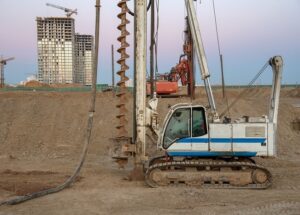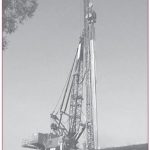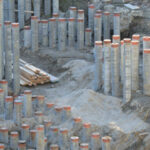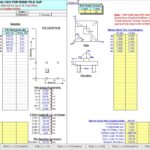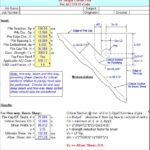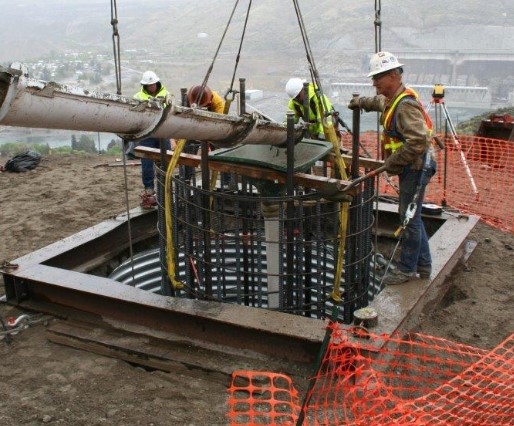
What are Deep Foundation? The Common Types of Deep Foundation
2 January 2022Table of Contents
What are Deep Foundation? The Common Types of Deep Foundation
1. What are Deep Foundations?
A deep foundation is needed to carry loads at depth or for functional reasons from a structure through weak compressible soils or fills on to stronger and less compressible soils or rocks.
Deep foundations under the finished ground surface are founded too deeply for their base bearing ability to be affected by surface conditions, generally at depths > 3 m below the finished ground level.
When unsuitable soils are present near the surface, the deep foundation may be used to transfer the load to a deeper, more capable strata at depth.
2. Types of Deep Foundation
The types of deep foundations in general use are as follows:
- Basements
- Buoyancy rafts (hollow box foundations)
- Caissons
- Cylinders
- Shaft foundations
- Pile foundations
a. Basement foundation
They are hollow substructures built to provide space below ground level for the work or storage. The structural design is driven by its practical needs rather than by considerations of the most effective method of resisting external earth and hydrostatic pressures. In open excavations, they are set up in place.
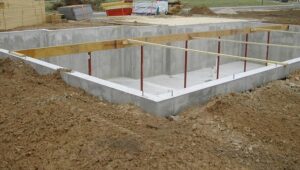
b.Buoyancy Rafts (Hollow Box Foundations)
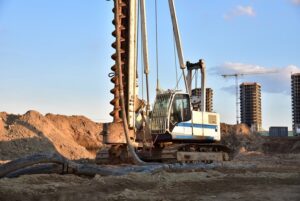
Buoyancy rafts or hollow box foundations also known as the floating foundations is a type of deep foundation is used in building construction on soft and weak soils.
They are designed to provide a buoyant or semi-buoyant substructure underneath which reduces net loading to the desired low intensity on the soil. Buoyancy rafts can be constructed to be sunk as caissons, and can also be installed in open excavations.
Buoyancy rafts are more expensive than traditional forms of foundations. For that reason, their use is usually restricted to sites that are on silts, soft sands and other alluvial deposits that are very deep, or where loads can be kept concentric. Schemes requiring underground tanks or where it’s economical to incorporate deep basements into the design are common.
c. Caissons Foundations
A caisson is a sort of foundation of the state of the hollow prismatic box, which is worked over the ground level and afterward sunk to the necessary depth as a solitary unit. It is a watertight chamber utilized for establishing foundations submerged as in rivers, lakes, harbors, etc. The caissons are of three types:
- Open Caissons: Open caissons are of hollow chambers, open both at the top and the bottom. The lower part of the caisson has a bleeding edge. The caisson is sunk into place by eliminating the soil from within the shaft until the bearing layer is reached. Well foundations are special type of open caissons used in India.
- Pneumatic Caissons: Pneumatic caissons are closed at the top but open at the bottom. A pneumatic caisson has a working camber at its bottom in which compressed air is maintained at the required pressure to prevent entry of water into the chamber. So, these type of excavations are done in dry.
- Floating Caissons: Floating caissons are open at the top but closed at the bottom. These caissons are developed ashore and afterward shipped to the site and floated to where these are to be finally installed. These are sunk at that spot by filling them with sand, ballast, water or concrete to an evened out bearing surface.
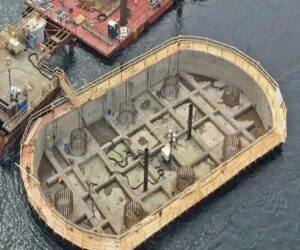
d. Cylinders
These foundations are placed when there is required to place only a single cylindrical unit.
e. Drilled Shaft foundations
These foundations are constructed by drilling a cylindrical hole within a deep excavation and subsequently placing concrete or another prefabricated load-bearing unit in it.
Their length and size can be easily tailored. Drilled shafts can be constructed near existing structures and under low overhead conditions, making them suitable for use in numerous seismic retrofit projects.
It may, however, be difficult to install them under certain conditions such as soils with boulders, soft soil, loose sand, and sand under water.
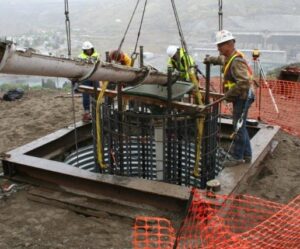
e. Pile foundations
Pile foundations are relatively long and slender members designed by driving preformed units to the desired foundation level, or by driving or drilling in tubes to the appropriate depth – tubes filled with concrete before or during withdrawal or by drilling unlined or wholly or partially lined boreholes filled with concrete after that.
